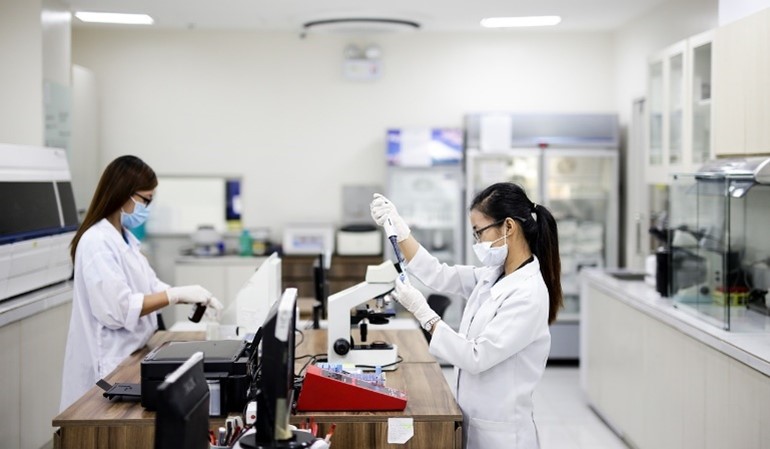Could Your Patient Have an Undiagnosed Bleeding Disorder?
Undiagnosed or misdiagnosed bleeding disorders are more prevalent than believed. According to the CDC, 1% of the general population (male and female) is affected by vonWillebrand Disease (vWD).
Patients must be diagnosed correctly and as quickly as possible to receive and benefit from appropriate treatments, avoid unnecessary and costly procedures that result in increased healthcare costs and hospitalizations, and avoid other medical complications that can impact a patient’s quality of life.
The potential number of undiagnosed symptomatic vWD or other mucocutaneous bleeding disorders is high. According to the Journal of Blood Medicine 2020, the prevalence of bleeding disorders is high among commercially insured patients. Case estimates from anonymous medical insurance claims of patients with symptoms closely matching vWD but without the diagnosis, indicate that 1 in 500 commercially insured individuals may have undiagnosed vWD or other mucocutaneous bleeding disorders. As of 2021, the Kaiser Family Foundation reports over 10 million people (approximately 54%) are commercially insured in New York State. In addition to commercially insured patients, nearly 7 million people are enrolled in New York’s Medicaid, CHIP, Qualified Health Plans or Essential Plans. This translates to approximately 90,000 patients that may be undiagnosed or misdiagnosed.
Help your patients get diagnosed properly by screening for the following symptoms:
Symptoms:
- Frequent or hard-to-stop nosebleeds that may be spontaneous and occur several times a year lasting more than 10 minutes.
- Easy bruising that may occur several times a month with little or no injury wherein a bruise is larger than the size of a quarter, it is not flat and has a raised lump.
- Heavy Menstrual Bleeding – Soaking through a pad or tampon / gushing of blood / and/or lasts longer than 7 days from beginning to end which can result in Anemia.
- Longer than Normal Bleeding After Injury, Surgery, Childbirth, or Dental Work – Bleeding may last more than 5 minutes or may stop and start up again hours or days later.
To Diagnosis this Disorder:
Ask questions about personal and family histories of bleeding. Providers should check for unusual bruising or other signs of recent bleeding and order blood tests to measure how the blood clots.
Patients should be asked about what type of medications they are taking since some medications can cause bleeding or make bleeding symptoms worse.
Treatment:
The type of treatment prescribed for vWD depends on the type and severity of the disease. To be effectively treated and managed, patients must be accurately diagnosed.
If your patient presents or reveals any of the above symptoms, consider ordering appropriate blood screening tests. The Hemophilia Treatment Centers (HTCs) listed below are recognized by the CDC and have physicians that specialize in treating all types of bleeding disorders including vWD. These centers offer comprehensive care by bringing together a team of physicians, nurses and other health care professionals who all specialize in diagnosing and treating bleeding disorders.
Please help your patients get accurately diagnosed and treated so they can live their best life and avoid unnecessary hospital procedures. To receive a complimentary supply of patient information sheets to leave in your waiting room, please contact the New York Blood Center at 516-478-5048.
If you have any questions or concerns about a specific patient, call one of the following Hemophilia Treatment Centers (HTCs) in your area:
ALBANY:
Albany Regional Comprehensive Center for Hemophilia & von Willebrand Disease at Albany Medical College / Phone: 518.262.5827
BRONX:
The Hemophilia Treatment Center at Montefiore (Bronx) / Phone (Adults): 718.920.4137 / Phone (Pediatrics): 718.741.2342
BUFFALO:
Western New York BloodCare (Buffalo) / Phone: 716.218.4001
LONG ISLAND:
Northwell Health Hemostasis and Thrombosis Center (LI – Nassau County) / Phone: 718.470.7380
NEW YORK CITY:
Regional Comprehensive Hemophilia Diagnostic and Treatment Centers at Mount Sinai Medical Center (New York City) / Phone: 212.241.8303
The New York Presbyterian / Weill Cornell Medical College Comprehensive Center for Hemophilia and Coagulation Disorders / Weill Cornell Medical College (New York City) / Phone (Adults): 646.962.2065 / Phone (Pediatrics): 212.746.3400
ROCHESTER:
Mary M. Gooley Hemophilia Center (Rochester) / Phone: 585.922.5700
SYRACUSE:
Waters Center for Children’s Cancer and Blood Disorders (Syracuse) / Phone: 315.464.5294
For further information about blood disorders, view the CDC’s Public Health Webinar Series on Blood Disorders.



